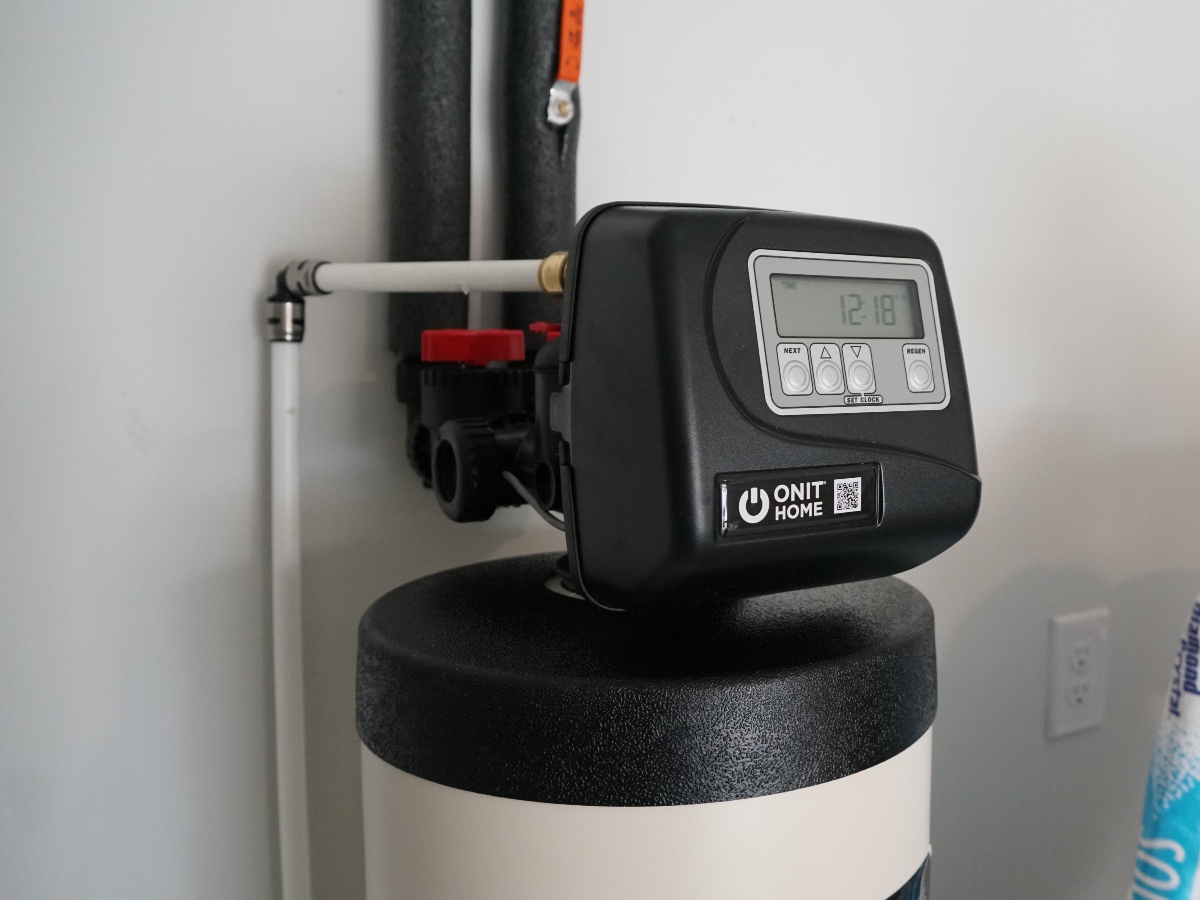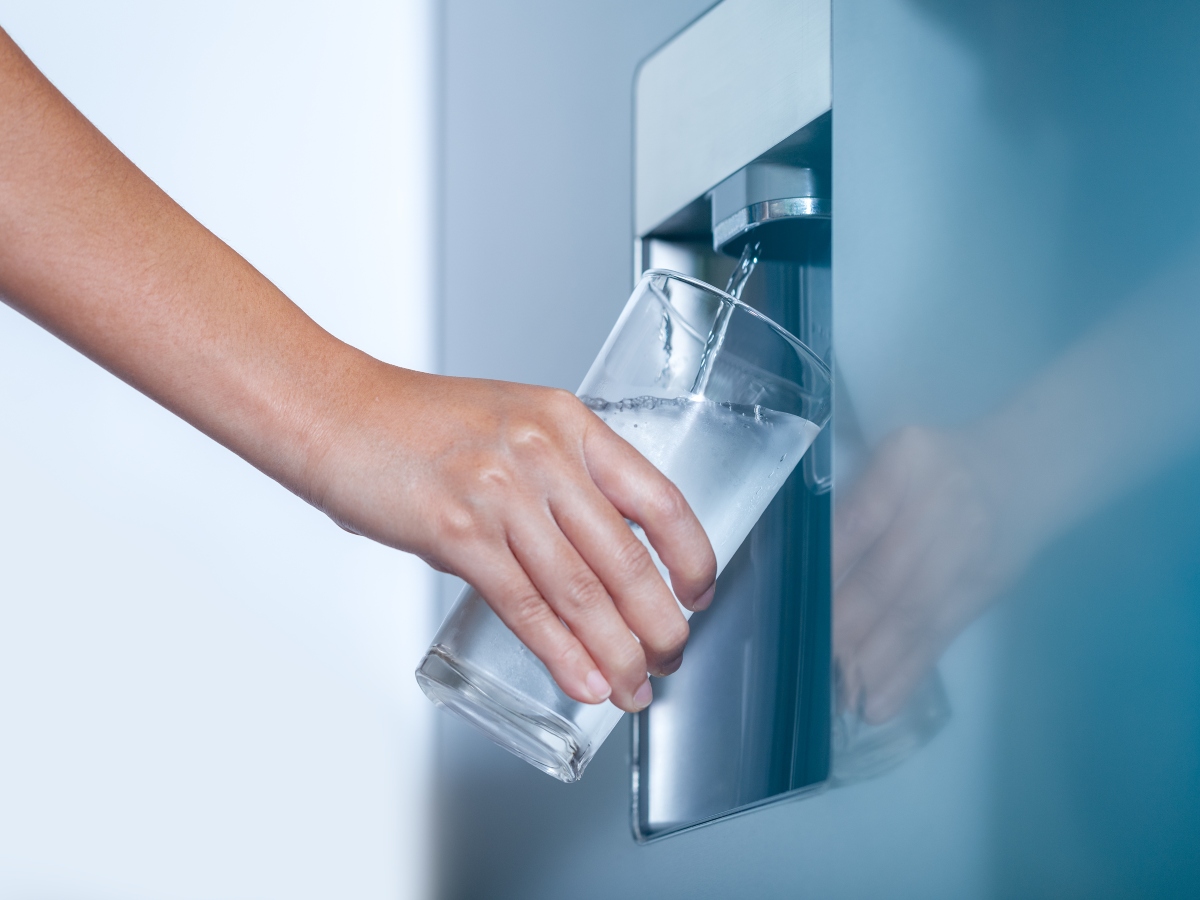A fridge water filter may seem like a frivolous purchase, but if you’re worried about the quality of your water, it’s worth considering. However, it will depend on the contaminants you want to filter. The demand for filters has been increasing daily. The demand for filters has been increasing daily. According to statistics, in the year 2022, the global fridge water filter market was valued at approximately $1.1 million. It’s expected to reach about $1.9 million by 2032.
Despite the growing demand, many people are still determining whether fridge filters work. This article will give you the low-down on whether they are worth the investment.
Understanding Fridge Water Filters
A fridge water filter is a small device that inserts into the waterline of your fridge and filters out impurities from the water. This is an incredible way to ensure that you and your family drink clean, healthy water.
Many fridge water filters also improve the taste of the water, making it more refreshing to drink. Most refrigerator filters use activated carbon technology to remove contaminants from the water before it reaches the fridge dispenser or ice maker. These filters use coconut-activated carbon blocks, which adsorb contaminants instead of absorbing them.
Adsorption differs from absorption. Adsorption means the surface area of the carbon block draws contaminants like a magnet. Water then passes through the pores as the pollutants stick to the block. Therefore, the pores’ size determines the substances the filter can remove. On the other hand, absorption means that the contaminants are drawn into the filtering component. A good example is how sponges absorb water.
You may be wondering how refrigerator filters work. Here’s how:
- There’s a carbon block inside the filter, which traps sediments and pollutants.
- While passing through the activated carbon, the water is able to absorb less lead and other toxic chemicals, reducing their levels. Further, chemical reactions inside the filter help reduce other chemicals, such as chlorine.

Do Fridge Water Filters Actually Work?
The answer depends on the contaminants you want to filter. Fridge filters use activated carbon, which effectively eliminates chlorine. It’s also a good choice if you want to remove impurities that affect your water aesthetics, such as taste and odor. However, fridge water filters do not remove all particles, such as bacteria, arsenic, chromium, and other inorganic pollutants.
It’s good to note that being ineffective does not mean the filter does not remove the mentioned pollutants. Instead, it can mean that it reduces them but does not lower them to safe levels. Water filters are rated in microns, which refers to the average size of the gaps in the filter surface. This rating shows the size of contaminant a filter can remove from your water.
The filter eliminates pollutants more effectively when the micron rating is lower. For example, a filter with a 5% micron rating can remove smaller contaminants than one with a 20% micron rating. Unfortunately, most fridge filters have an average micron rate of 20%, meaning they won’t remove most pollutants.
The NSF/ANSI 42 certification typically serves as the standard for authenticating fridge water filters. In addition, it demonstrates that drinking water treatment units are accredited for aesthetic effects such as chlorine, taste, and odor reduction.
Other filters, nevertheless, have multiple certifications, such as the Whirlpool EveryDrop Filter, which is NSF 401, 53, and 42 certified.
What a Fridge Filter Doesn’t Remove
A fridge water filter efficiently removes chlorine and aesthetic effects. However, according to the EPA, an activated carbon filter is not designed to filter disease-causing pollutants. As a result, many contaminants can pass through the filter, exposing you to health risks. Here are some pollutants your fridge filter may fail to remove:
- Total Dissolved Solids (TDS): A fridge filter cannot remove TDS from your drinking water. TDS represents the content of all the inorganic and organic substances in water, including salts, minerals, metals, and more. The reverse osmosis filtration method is the most effective way to filter TDS from your water.
- Arsenic: A fridge filter does not remove arsenic in water. However, it can reduce its levels. The best option for eliminating arsenic is using a reverse osmosis system, ion exchange, and distillation.
- Microorganisms: Fridge filters cannot remove microorganisms such as bacteria, viruses, algae, and protozoa.

What Does a Fridge Filter Remove or Reduce?
The contaminants that a refrigerator filter can remove or reduce from your drinking water are very few. However, the filter can remove the following:
- Chlorine: According to the U.S. Environmental Protection Agency (EPA), about 315 million Americans get their drinking water from a public water system. Public water systems commonly use chlorine to disinfect water and inactivate harmful microorganisms. A fridge filter is an excellent option for removing 90-99% chlorine and related taste and smells, but this will depend on the model.
- Lead and other heavy metals: Fridge water filters commonly use the activated carbon filtration medium, which can reduce lead, cadmium, and other heavy metals. However, it’s important to remember that the micron rating affects how much a refrigerator filter can remove or minimize heavy metals.
- Volatile organic chemicals (VOCs): Any filter that uses an activated carbon cartridge can effectively remove VOCs. VOCs are gases mostly from human-made chemicals that some solids or liquids emit.
Do You Need a Refrigerator Filter?
Whether you need a fridge filter in your home depends on your water quality and how often you want to use your fridge’s water dispenser. You will need a fridge water filter in your home if your water has chlorine or smells and odors. On top of having safe and tastier water, you will enjoy having excellent ice. Furthermore, a fridge water filter only occupies no space, making it convenient. However, there’s a catch!
You can use this type of filter for your drinking water only. For example, you cannot fill your cooking pot with water from your dispenser. This means you have to get another filter, like the under-the-sink one, to get clean water from your faucet. Having over one filter in your home can be costly, especially since they need regular replacement.
In addition, the water filter can become a breeding ground for bacteria due to moisture and fungi. Furthermore, since most fridge filters use the adsorption method for filtration, you find the filter becomes ineffective after using it for some time. This means the filter does not remove all the pollutants as it would when new.
How Often Should I Replace My Fridge Water Filter?
Like all filters, refrigerator filters eventually get clogged up and need replacement. You should replace your fridge water filter depending on the manufacturer’s instructions, but the standard time is after every six months. Of course, if you notice a water quality decrease, you may need to replace your filter sooner.
So, what happens if you leave your fridge’s water filter unchanged? Over time, the filter will become clogged with impurities and can no longer effectively filter your water. This can lead to problems like sour taste, odor, and even bacteria growth.
Replacing your fridge water filter is easy and only takes a few minutes. So be sure to check your filter regularly and replace it as needed. Furthermore, you can clean your filter that is less than six months old to clear debris and kill microorganisms.
Cleaning the filter is very easy, and you need no considerable effort. However, to eliminate impurities that cause health problems, soak your filter in cooking vinegar and rinse it thoroughly using water.
For best water quality from your dispenser, depending on the quality of your water, ensure you clean it at least once in two months. It’s also good to note that your water filter can remove contaminants, but when you test your water, you find there are still there. Your fridge dispenser may be the culprit. In a 2013 Germ Study, National Sanitation Foundation (NSF) found that 43% of items tested in the kitchen had concerning levels of mold and yeast. Among them were the fridge water dispenser and fridge ice dispenser. Bacteria can also bloom in your fridge water and ice dispensers, leading to water contamination. That’s why it is essential to clean the ice and water dispenser regularly.

Which Filter Should You Use?
No filter can remove 100% contaminants, as the filters come with different technologies. The effectiveness of a water filter will depend on your water quality. That’s why it’s necessary to test your water before investing in a filter. A water test will let you understand your water quality, including the contaminants that are present.
The best water filtration method is reverse osmosis. Reverse osmosis systems use a semipermeable membrane that removes odors, pesticides, nitrates, sulfates, fluoride, bacteria, pharmaceuticals, and arsenic contaminants.
It uses five levels of filtration, which are:
- Carbon pre-filter: removes sediment, dirt, and other solid debris.
- Granular activated carbon pre-filter: Remove all solid debris.
- Carbon block pre-filter: Removes chlorine.
- Reverse Osmosis Membrane: Traps contaminants such as fluoride and other tiny particles.
- In-line Polishing Filter: To remove the smell and taste and boost pH levels.
You can also upgrade to a whole home water system that eliminates 99% of contaminants. With this system, enjoy peace of mind knowing that your entire house has clean water.
Improve Your Water Quality Using ONIT’s Whole-Home Water Filtration System
So, do fridge water filters filter your water? The filters are effective for removing chlorine and related tastes and orders. Refrigerator water filters do not remove disease-causing contaminants.
If you’re looking for an excellent filtration system, then ONIT Home’s whole home filtration system might be what you’re looking for. It can help you keep your family from health issues by using contaminated water. Our filtration system is incredibly effective, as it can filter 99% of water contaminants. In addition, we can help you design a system that will suit your home’s water needs. For more information, call us at 1-833-433-0331 or visit us online to book a free water test. Need clean water? We’re ONIT!



